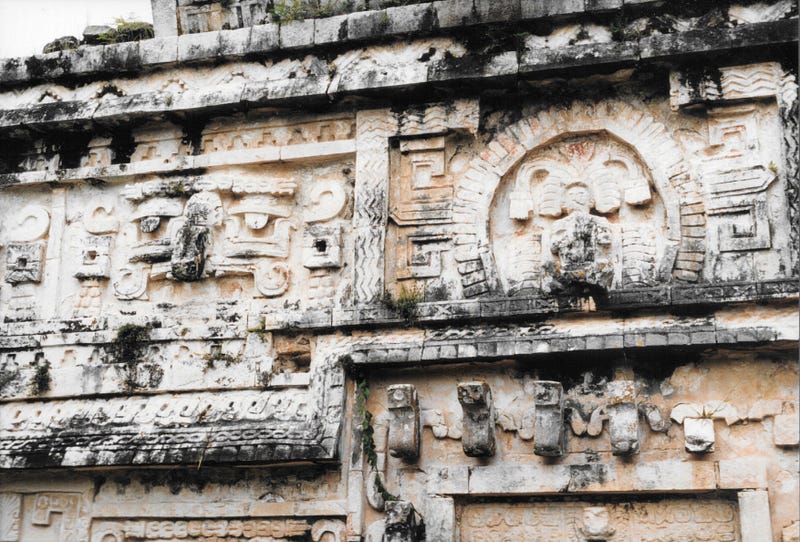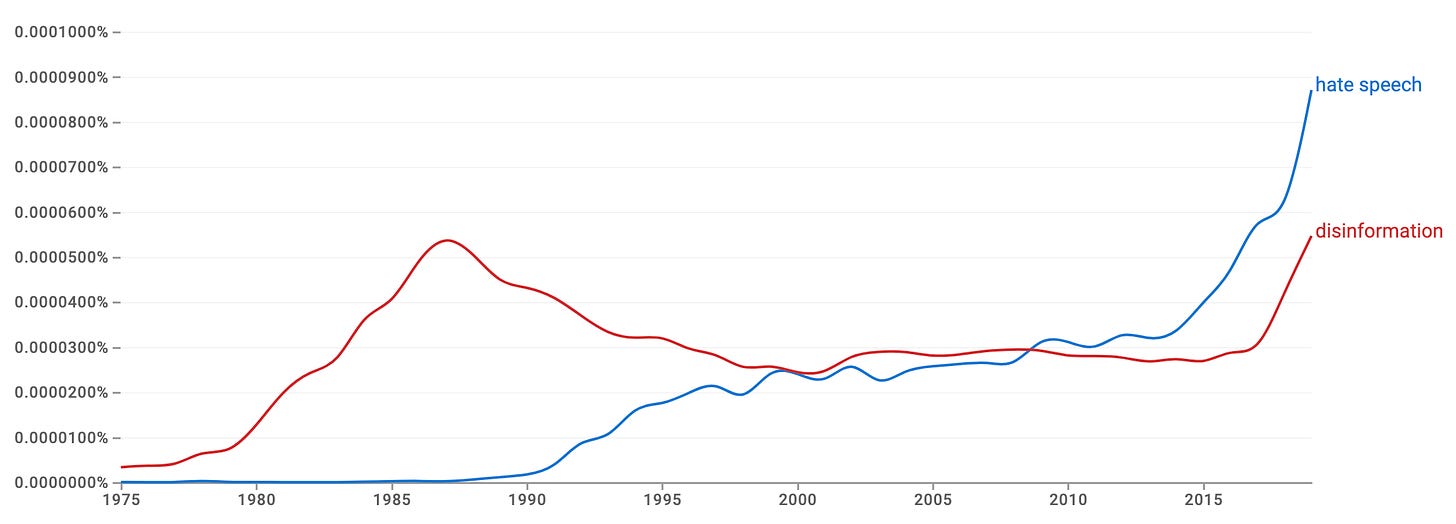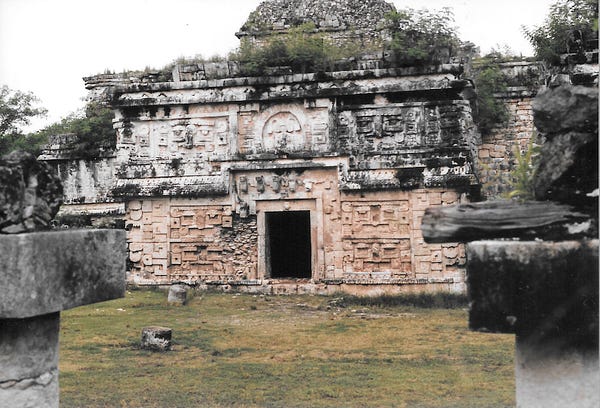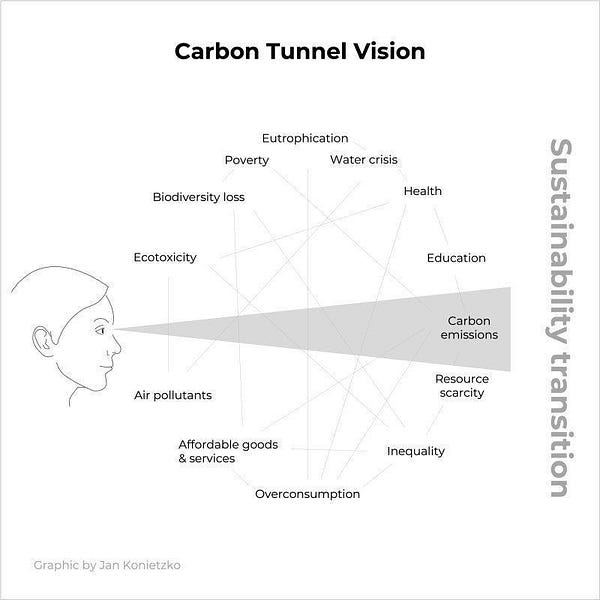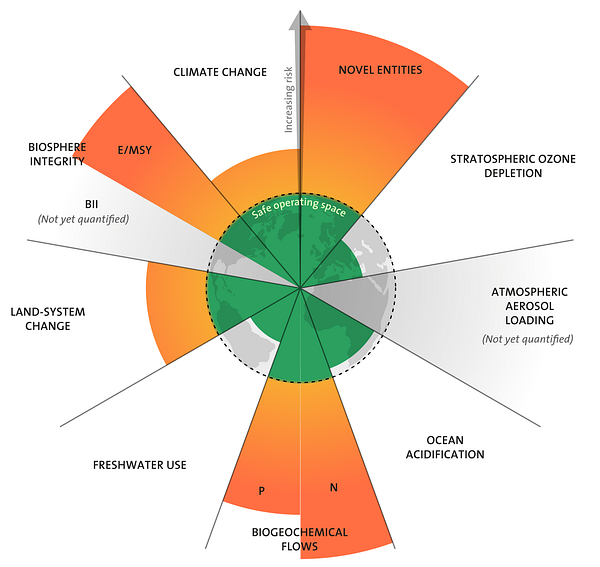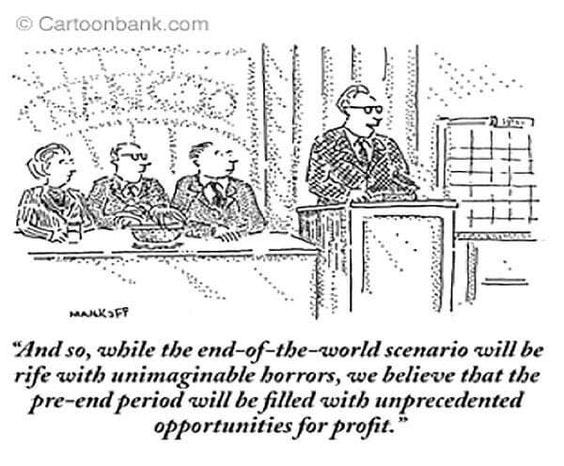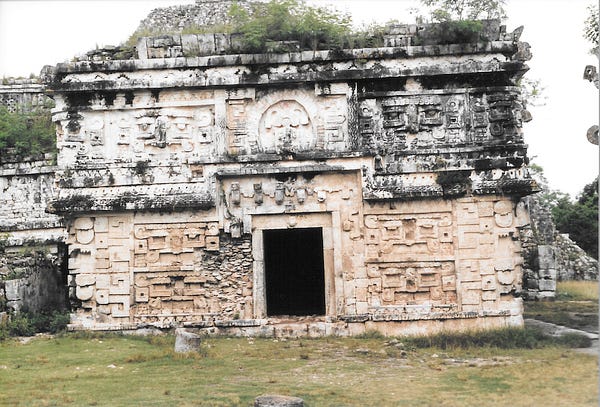My provincial government has recently opened up a bit of a hornet’s nest around the expansion of housing upon significantly ecologically-sensitive lands of the Oak Ridges Moraine[1] that had been ‘protected’ from such exploitation since 2005 by a legislative act of our provincial parliament[2]. The narratives around the ‘protection’ of this area are interesting to peruse[3].
There has been a flurry of media articles and social media posts revealing the cronyism between the current government and certain landowners that stand to profit handsomely from this policy shift[4] — many of whom purchased the land in question in just the past few years. And while these revelations are interesting and serve to confirm my bias regarding the ruling caste, this is not what I wish to focus upon.
I want to talk a bit about the Overton Window[5] or ‘controlled opposition[6]’ that I have noticed in my province around this issue and the related notion of growth, especially population growth and its concomitant impact on the environment and ecological systems.
Virtually every article and citizen comment I’ve read around this issue responds in a relatively tightly closed worldview that assumes a few things, particularly that growth is not only beneficial but must and will occur. Since it is good and will continue, the ‘debate’ becomes one of urban sprawl verses densification.
It would be best, the argument goes, for the environment and ecological systems if we were avoid expanding into this ‘Greenbelt’ and to contain our growth within tightly-packed urban centres. This perspective is heralded far and wide but especially by so-called environmentally-minded groups/individuals.
For example, the Greenbelt Foundation — an “organization solely dedicated to ensuring the Greenbelt remains permanent, protected and prosperous” — argues that “Growing in more compact ways, relying more on intensifying existing urban areas and creating dense, mixed-use new communities can reduce long-term financial commitments and ensure better fiscal health now and for generations to come.”[7]
None realise that increasing density does not necessarily equate to environmental soundness since it is the numbers of people that leads to the most significant drawdown of finite resources, not necessarily how they are distributed — particularly in ‘advanced’ economies where consumption is significantly higher than other economies. Yes, small and walkable communities do tend to show a decrease in certain resource needs but one cannot keep packing more and more people into tight spaces and argue the environment and ecological systems are ‘saved’ in such a scenario.
The many cons of densification are ignored. Such as the ‘heat island effect’ that increases energy consumption, the increased economic activity and consumption that tends to accompany dense urban centres, and traffic congestion that can cause emissions increases — to say little about the social pathologies and negative health impacts found in higher density settlements, such as the increased prevalence of anxiety/depression or the speed with which epidemics can spread[8].
Nowhere does one read a challenge to the very foundation of this interpretive lens that growth is good and inevitable. Nowhere is a discussion of halting growth or, God forbid, reversing it (i.e., degrowth). Growth MUST continue, and this pertains to both economic and population growth.
Growth is of course a leverage point for our ruling caste. It is used, in my opinion, to continue to expand the wealth-generation and -extractions systems but also, and perhaps more importantly, to maintain the Ponzi-like nature of our financial/economic systems. It is, however, as are all policies/actions, marketed as the means to ensure our prosperity.
Here I am reminded of a passage from Donella Meadows’s text Thinking in Systems: A Primer (2008):
“…a clear leverage point: growth. Not only population growth, but economic growth. Growth has costs as well as benefits, and we typically don’t count the costs — among which are poverty and hunger, environmental destruction and so on — the whole list of problems we are trying to solve with growth! What is needed is much slower growth, very different kinds of growth, and in some cases no growth or negative growth. The world leaders are correctly fixated on economic growth as the answer to all problems, but they’re pushing with all their might in the wrong direction. …leverage points frequently are not intuitive. Or if they are, we too often use them backward, systematically worsening whatever problems we are trying to solve.”
The thinking outlined above by Meadows regarding negative growth and pushing in the wrong direction is completely foreign to the discussions I am witnessing on the expansion into Ontario’s ‘Greenbelt’. None dare challenge the mythical narrative that growth is good and inevitable. Such out-of-the-box thinking is not allowed. If such a thought is shared, the speaker is marginalised or ignored by most.
This is particularly so if one enters the kryptonite-like morass that is population growth in ‘advanced’ economies where such growth is ensured by skimming people from other countries — spun as a social service to the world’s needy — but is really about keeping the financial/economic Ponzi from collapsing because domestic populations are not reproducing fast enough[9].
And here I am reminded of another text passage, this time by Noam Chomsky in The Common Good (1998)[10]:
“In general, the mainstream media [everyone] all make certain basic assumptions, like the necessity of maintaining a welfare state for the rich. Within that framework, there’s some room for differences of opinion, and it’s entirely possible that the major media are toward the liberal end of that range. In fact, in a well-designed propaganda system, that’s exactly where they should be. The smart way to keep people passive and obedient is to strictly limit the spectrum of acceptable opinion, but allow very lively debate within that spectrum — even encourage the more critical and dissident views. That gives people the sense that there’s free thinking going on, while all the time the presuppositions of the system are being reinforced by the limits put on the range of the debate.” ~Noam Chomsky
This appears to be the crux of the matter when it comes to many issues. The ruling caste, with the help of the mainstream media and others, circumscribe the range of the debate. This provides cover for the ultimate endgame — in the issue over the Greenbelt expansion it is the accommodation of population expansion through the construction of millions of homes (and it matters not whether these are on ecologically-sensitive lands or not in the long run) from which the ruling caste will undoubtedly make billions of dollars in profits…while the finite resources necessary to support this growth become more rare and costly to extract/process, and the environment and ecological systems upon which we depend continue to experience disruption and destruction.
We are continually fed a mythical narrative about growth and then set to debate and argue each other over how to accommodate it while ignoring the only way that might help to mitigate — at least marginally — our ecological overshoot predicament: degrowth.


